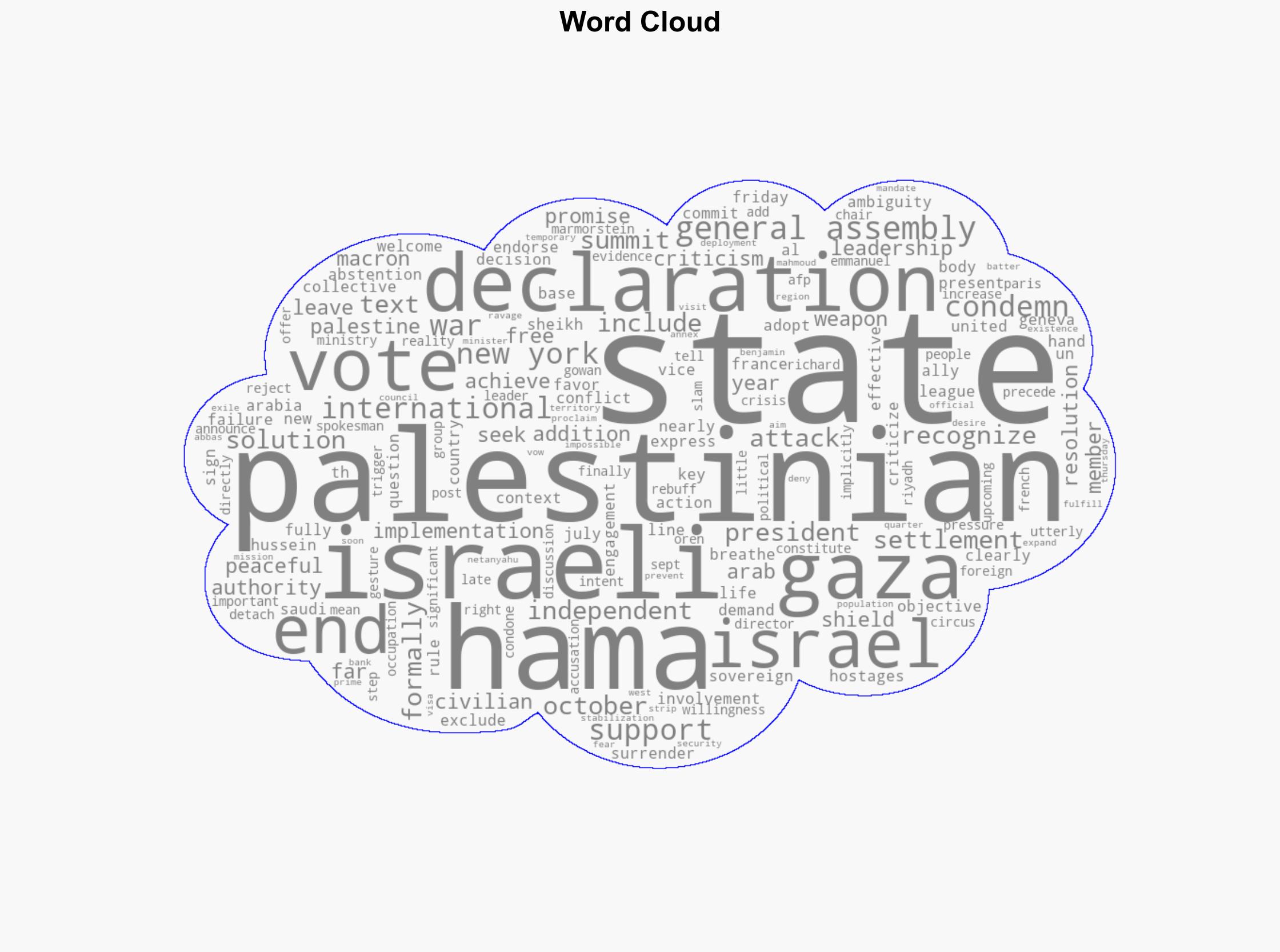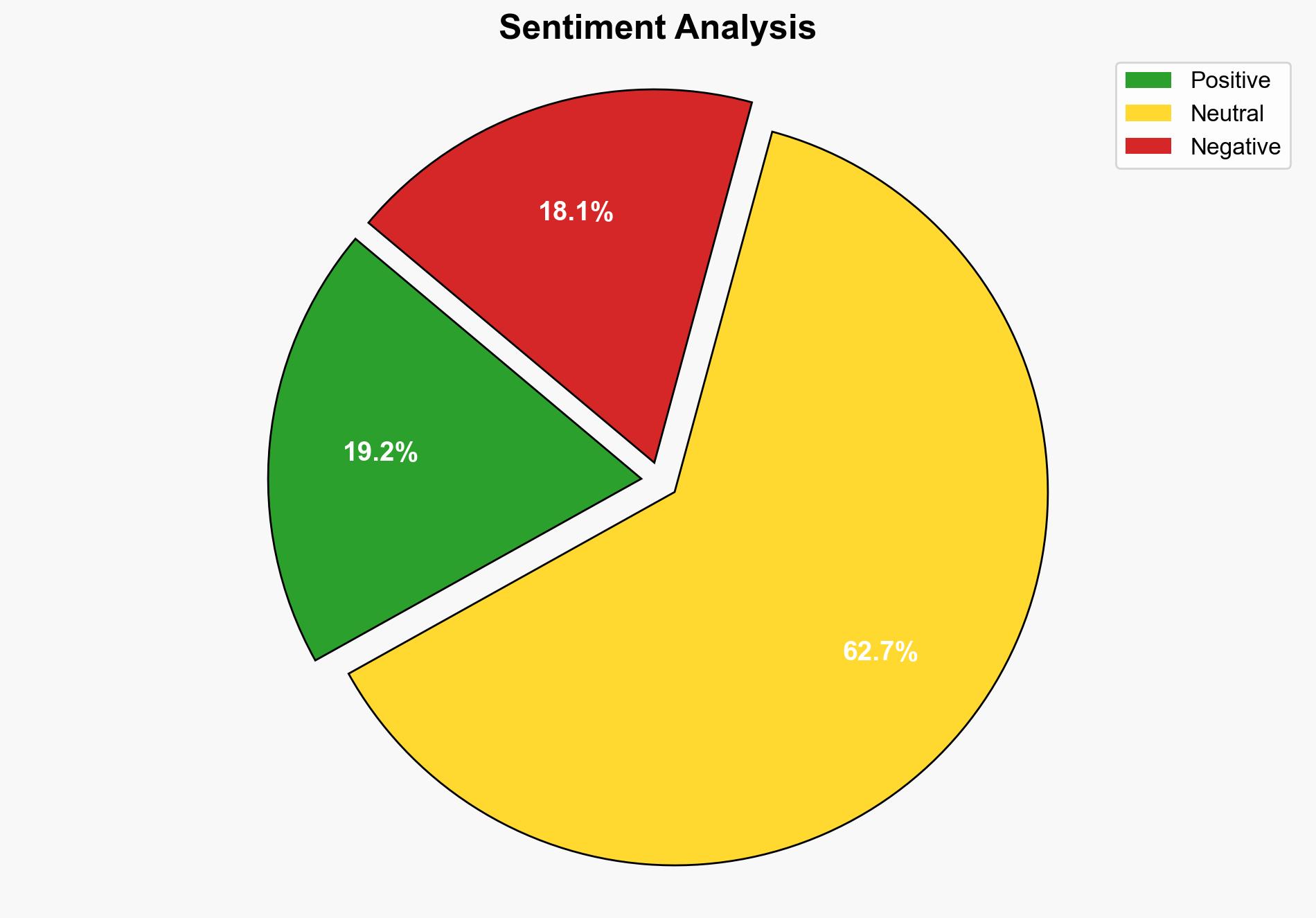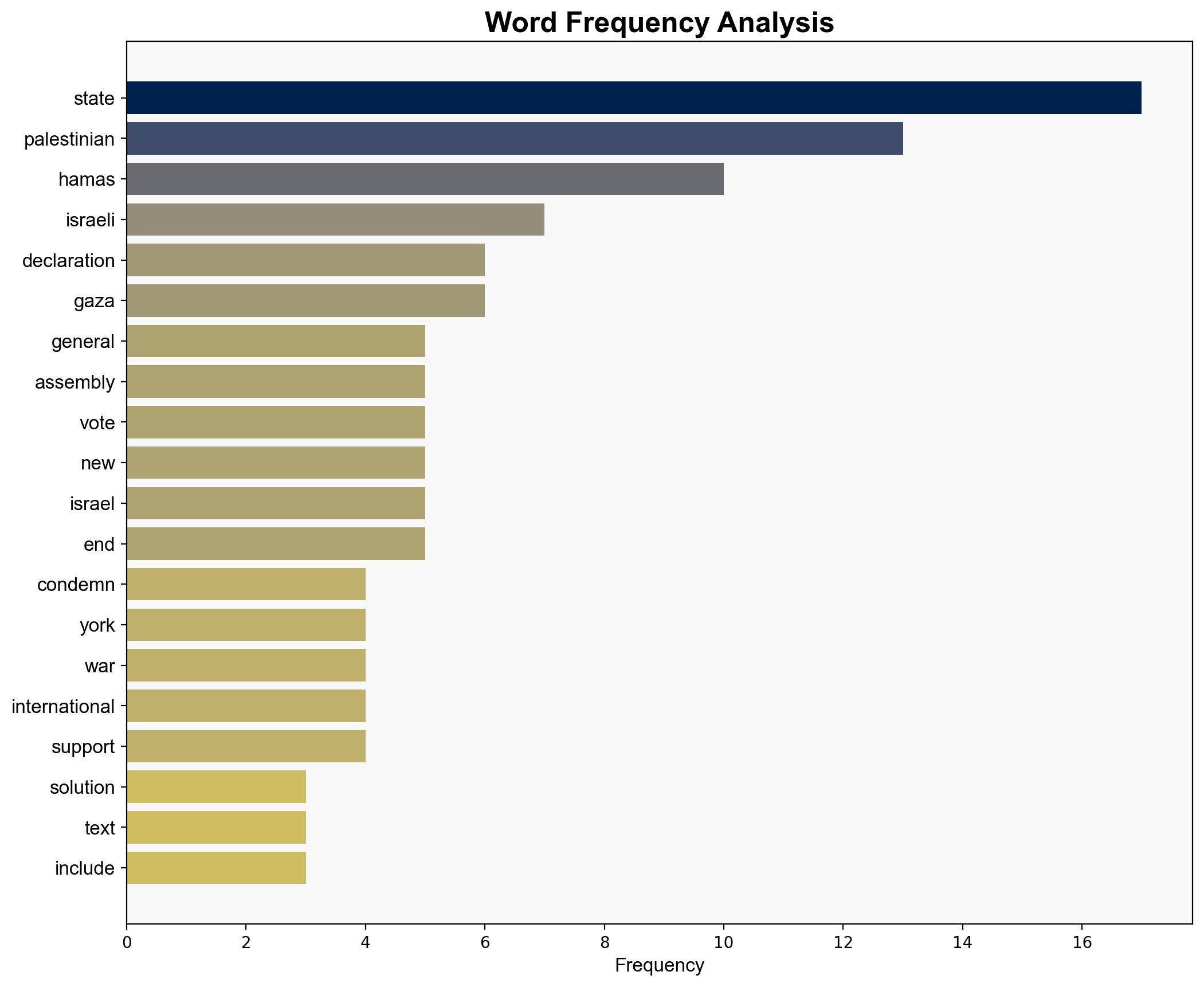UN General Assembly votes for Hamas-free Palestinian state – Hurriyet Daily News
Published on: 2025-09-13
Intelligence Report: UN General Assembly votes for Hamas-free Palestinian state – Hurriyet Daily News
1. BLUF (Bottom Line Up Front)
The UN General Assembly’s resolution for a Hamas-free Palestinian state represents a significant diplomatic move, but its practical implementation faces substantial obstacles. The most supported hypothesis suggests that this resolution aims to pressure Hamas and Israel into negotiations, though its effectiveness is uncertain. Confidence level: Moderate. Recommended action: Monitor regional reactions and prepare for potential shifts in diplomatic stances.
2. Competing Hypotheses
1. **Hypothesis A**: The resolution is a genuine effort to revive the two-state solution by isolating Hamas and encouraging international support for the Palestinian Authority. This hypothesis is supported by the involvement of key international actors like France and Saudi Arabia, and the resolution’s alignment with the Arab League’s stance.
2. **Hypothesis B**: The resolution primarily serves as a symbolic gesture to placate international criticism of the UN’s perceived inaction, without expecting tangible changes on the ground. This is supported by the lack of concrete enforcement mechanisms and Israel’s outright rejection of the declaration.
3. Key Assumptions and Red Flags
– **Assumptions**: Hypothesis A assumes that international pressure can effectively influence Hamas and Israel. Hypothesis B assumes that symbolic actions are sufficient to address international criticism.
– **Red Flags**: The absence of a clear enforcement mechanism in the resolution and Israel’s strong opposition suggest potential ineffectiveness. The timing of the resolution, following significant conflict, may indicate reactive rather than proactive diplomacy.
4. Implications and Strategic Risks
– **Geopolitical**: The resolution could exacerbate tensions between Israel and supporting states, potentially leading to diplomatic rifts.
– **Security**: If perceived as biased, the resolution might embolden Hamas or other extremist factions, increasing regional instability.
– **Diplomatic**: The resolution may strain US-Israel relations, given the US abstention and Israel’s rejection.
5. Recommendations and Outlook
- Engage in diplomatic dialogues with key stakeholders to clarify intentions and explore enforcement mechanisms.
- Scenario-based projections:
- Best: Resolution leads to renewed peace talks and reduced hostilities.
- Worst: Increased violence and diplomatic isolation of Israel.
- Most Likely: Continued diplomatic stalemate with sporadic escalations.
6. Key Individuals and Entities
– Emmanuel Macron
– Benjamin Netanyahu
– Mahmoud Abbas
– Hussein al-Sheikh
– Oren Marmorstein
– Richard Gowan
7. Thematic Tags
national security threats, regional focus, diplomacy, Middle East conflict, international relations




